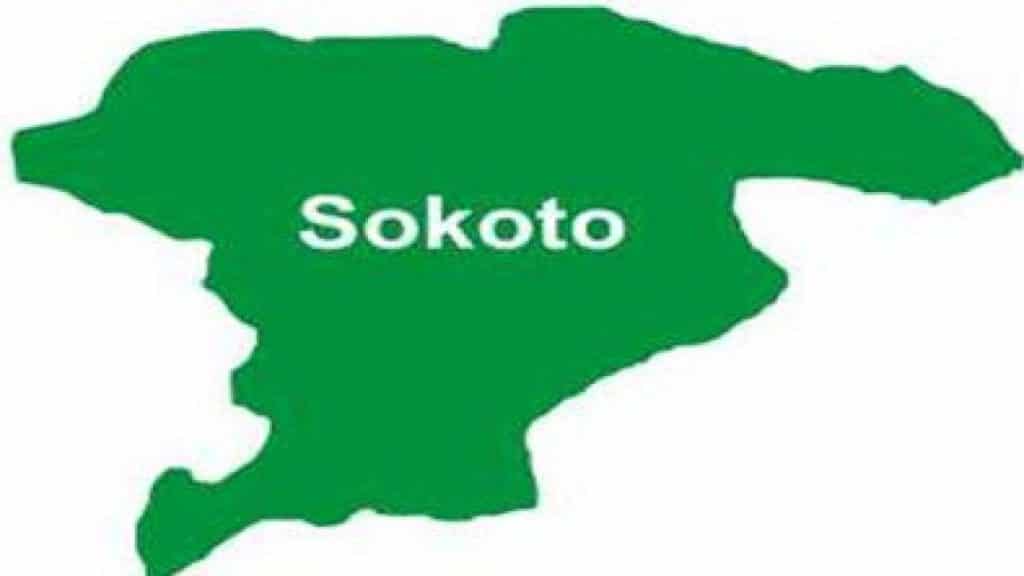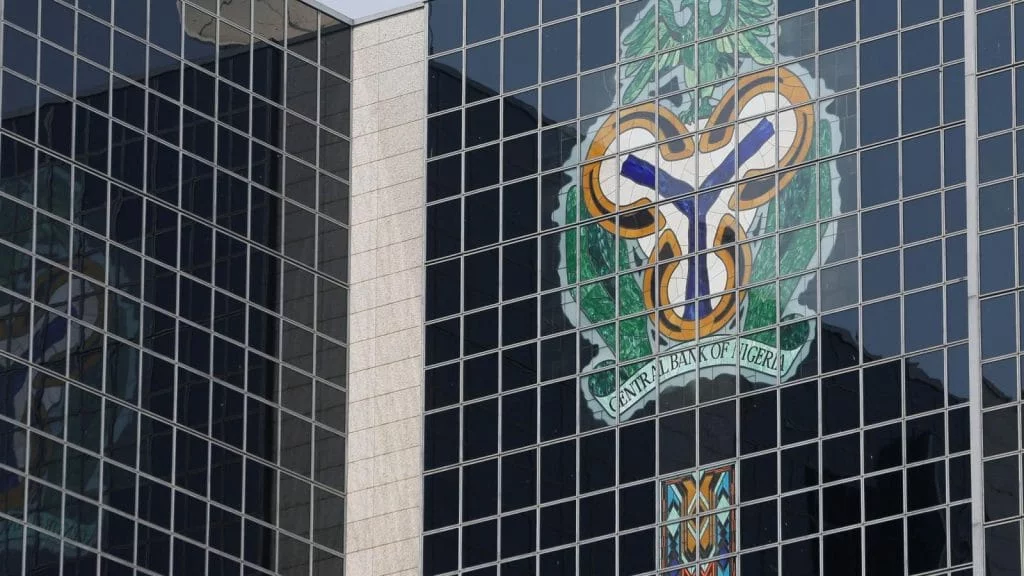Business
P’Harcourt refinery: Marketers threaten boycott as NNPCL juggles petrol price
Published
5 months agoon
By
Ekwutos Blog
Dealers insist PMS must be cheaper than Dangote’s, NNPCL delays price portal opening, restricts product
Follow us at Story teller for more information
Oil marketers have outlined the conditions that will make them patronise the newly rehabilitated Port Harcourt Refinery Company in Rivers State.
PHRC, under the management of the Nigerian National Petroleum Company Limited, must dispense its refined petroleum products below the prices of the Dangote Petroleum Refinery, the dealers stated.
But the NNPCL, in reaction to claims on Wednesday that its petrol price was about N1,045/litre, stated that the refinery had yet to release its prices, as products from the plant were currently dispensed to only NNPCL stations.
Health 360: Antibiotic Resistance: The Looming Crisis in Healthcare0:00 / 1:01
PUNCH SPORT EXTRA: Super Eagles Face Rwanda In Uyo0:00 / 0:00
The oil firm’s spokesperson, Olufemi Soneye, revealed that the company was still reviewing its prices and had yet to commence bulk sales, as its purchasing portal remained closed.
Meanwhile, it was also gathered on Wednesday that oil marketers imported 105.67 million litres of petrol into the country in five days.
Marketers confirmed that NNPC was selling petrol at N1,045/litre, stressing that they may be compelled to opt for petrol importation as a means of meeting local demands.
The PUNCH exclusively gathered that a total sum of 78,800 metric tonnes representing 105.67 million litres of petrol was imported into the country in the last five days spanning November 23 and November 28.
On Tuesday, the 60,000-capacity Port-Harcourt refinery resumed operations after years of inactivity, drawing initial praise from Nigerians and industry stakeholders.
The NNPC said the newly rehabilitated complex of the old Port Harcourt refinery, which had been revamped and upgraded with modern equipment, is operating at a refining capacity of 70 per cent of its installed capacity.
NNPC added that diesel and Pour Fuel Oil would be the highest output from the refinery, with a daily capacity of 1.5 million litres and 2.1 million litres, respectively.
This is followed by a daily output of Straight-Run Gasoline (Naphtha) blended into 1.4 million litres of Premium Motor Spirit (petrol), 900,000 litres of kerosene, and low-pour fuel oil of 2.1 million litres.
It was stated that about 200 trucks of petrol would be released into the Nigerian market daily.
However, claims that the national oil firm’s PMS price was higher than that of Dangote triggered diverse reactions from marketers.
The National Publicity Secretary of the Independent Petroleum Marketers Association of Nigeria, Chinedu Ukadike, told one of our correspondents that though NNPC had yet to release any price for the products from the refurbished Port Harcourt refinery, a high price would discourage marketers.
Dangote currently sells his petrol at N970/litre, while imported petrol is around that price.
Ukadike, however, noted that there was the possibility that the NNPC would review its prices downward when the Port Harcourt refinery comes fully on stream.
He confirmed that the state-owned oil company sells a litre of PMS at N1,040 or N1,045 while the Dangote refinery just reviewed its price from N990 to N970 for marketers buying a minimum of two million litres.
Ukadike did not mince words when he said independent marketers would only buy from the NNPC if its price is cheaper than that of Dangote or vice versa.
“With the Port Harcourt refinery now working, we are anticipating that any moment from now, NNPC will give us its price. Once NNPC releases its price, we will start loading from NNPC. That is subject to if it is cheaper than that of Dangote.
“The last NNPC price was N1,040 and N1,045 per litre. But I know there will be a review of prices because there has been a crash in prices globally. So, we are expecting a review. Once that review is done, I will be able to give you the actual price. I know they are reviewing it. They are on top of the matter,” the IPMAN spokesman said.
The latest development also indicates that oil marketers may commence the importation of fuel if the prices set by both domestic refineries surpass their profit margins, thereby making it more financially viable for them to rely on imported fuel rather than locally produced stock.
The National Public Relations Officer of the Petroleum Products Retail Outlets Owners Association of Nigeria, Dr Joseph Obele, had earlier said NNPC petrol was N75 higher than the N970/litre offered by Dangote refinery.
However, PETROAN’s President, Billy Gillis-Harry, in a statement denied the claim, stressing that no price has been released by the national oil firm.
He explained that members of the association bought PMS based on the old pricing structure and are still waiting for the updated prices.
The statement read, “The National Headquarters of Petroleum Products Retail Outlet Owners Association of Nigeria, PETROAN Abuja would Like to Inform the media and the general public that no new price for PMS has been released by the NNPC port Harcourt refinery.
“Members of PETROAN only bought PMS with the old pricing template awaiting
new prices. We are excited that the production and loading of refined petroleum products have commenced at the Port Harcourt Refinery and we are expectant that soon the price of PMS will be stated by NNPC to the benefit of Nigerians.”
You may like
Business
Fire outbreak destroys onions worth millions in Sokoto community
Published
12 minutes agoon
April 27, 2025By
Ekwutos Blog
A fire outbreak has destroyed onions worth millions of naira in Gidan-idi Kwakwazo community, Goronyo Local Government Area of Sokoto State.
This is according to the National Emergency Management Agency (NEMA) in a post on ita official X handle.
The incident, which occurred around 9:00 am on Friday, gutted several local storage facilities and completely razed about 60 barns of onions.
“Fortunately, no lives were lost and no injuries were reported. The exact cause of the fire remains unknown at the time of assessment,” it added.
According to NEMA, the exact cause of the fire remains unknown as at the time of the assessment.
The disaster is a major setback for the residents of the community, where onion farming is the primary source of livelihood.
Affected farmers described the incident as a devastating blow to their means of survival.
Business
Tinubu’s reforms not easy, delivering results – Cardoso
Published
25 minutes agoon
April 27, 2025By
Ekwutos Blog
The governor of the Central Bank of Nigeria has said the reforms implemented by President Bola Ahmed Tinubu’s government in the past eighteen months are not easy but are delivering results.
This is according to Cardoso’s excerpts released upon the closure of the 2025 IMF/World Bank Spring Meetings in Washington, D.C., in the US.
He explained that Nigeria’s delegation attended the meetings to showcase economic reforms under President Bola Tinubu’s administration.
“Thanks to the steps taken over the past 18 months, we have strengthened our monetary buffers and positioned Nigeria to better withstand external shocks,” Cardoso said.
“To all Nigerians: these reforms are not easy, but they are delivering results. We have moved from a position of vulnerability towards one of growing strength, and our economic trajectory is beginning to turn positive”, he added.
Ekwutosblog recalls The Tinubu government rolled out several policies, including liberalisation of the foreign exchange market and fuel subsidy removal in 2023.
Cardoso introduced FX code, the Electronic Foreign Exchange System (EFEMS), and recapitalization of the financial system, among other reforms.
While the reforms under Cardoso remain noteworthy, Nigeria’s inflation dropped to 23.18 percent in March, and the interest rate stood at 27.50 percent in February 2025 amidst the rising cost of living in Nigeria.
Business
CBN raises over N1tn in fresh OMO auction
Published
3 hours agoon
April 27, 2025By
Ekwutos Blog
The Central Bank of Nigeria (CBN) raised a total of N1.008 trillion at its Open Market Operations (OMO) auction held on Friday, April 25, 2025.
This follows an overwhelming investor demand that led to a 102 percent oversubscription.
According to the apex bank data, the auction, which initially offered N500 billion across two maturities, attracted total bids of nearly N1.4 trillion.
This indicates that investors sought to take advantage of high-yield government instruments amid rising inflation and expanding money supply.
The move by the CBN to raise funds from OMO affirms its aggressive monetary tightening stance aimed at mopping up excess liquidity and cooling inflationary pressures that have persisted despite elevated interest rates and a record-high cash reserve ratio.
Accordingly, the most in-demand instrument at the auction was the 319-day OMO bill, maturing on March 10, 2026.
It drew a total subscription of N1.062 trillion, more than four times the CBN’s offer of N250 billion. The central bank eventually allotted N688.30 billion at a stop rate of 22.73 percent, with bid rates ranging between 20.39 percent and 23.75 percent.
Similarly, the 298-day bill, maturing on February 17, 2026, also performed strongly. It received bids totalling N329.54 billion versus the same N250 billion on offer. The CBN allotted N319.54 billion at a stop rate of 22.37 percent, with bid rates falling between 20.45 percent and 23.75 percent.
In total, the apex bank raised N1.008 trillion, more than double its initial offer.

Windstorm destroys over 50 houses in Nasarawa community

Fire outbreak destroys onions worth millions in Sokoto community

2027 Elections: El-Rufai meets Kwankwaso in Abuja
Trending

 Trending6 months ago
Trending6 months agoNYA demands release of ‘abducted’ Imo chairman, preaches good governance
- Business6 months ago
US court acquits Air Peace boss, slams Mayfield $4000 fine

 Politics6 months ago
Politics6 months agoMexico’s new president causes concern just weeks before the US elections
- Entertainment6 months ago
Bobrisky transferred from Immigration to FCID, spends night behind bars
- Entertainment6 months ago
Bobrisky falls ill in police custody, rushed to hospital

 Politics6 months ago
Politics6 months agoRussia bans imports of agro-products from Kazakhstan after refusal to join BRICS

 Politics6 months ago
Politics6 months agoPutin invites 20 world leaders
- Politics1 year ago
Nigerian Senate passes Bill seeking the establishment of the South East Development Commission.

